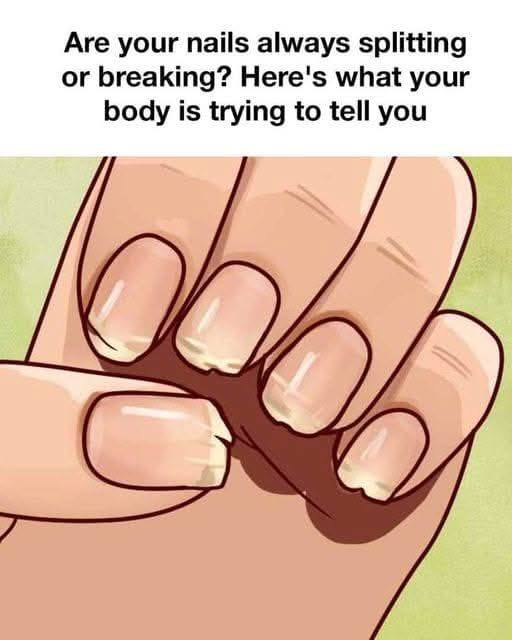ADVERTISEMENT
3. Environmental Factors: Protecting Your Nails from External Damage
Nails are exposed to many external factors that can weaken them. Here are some key environmental influences on nail health and how to protect against them:
Chemical Exposure
Regular exposure to harsh chemicals in cleaning agents, nail polish removers, and other household products can erode the nail’s natural protective barrier, leading to brittleness. To protect your nails, wear rubber gloves while cleaning, and use acetone-free nail polish removers whenever possible.
Cold and Dry Weather
Cold or dry climates can dehydrate nails, making them brittle. During colder months, use a rich hand cream with hydrating ingredients like glycerin or ceramides, and wear gloves when going outside. A humidifier can also help add moisture to the air indoors, keeping your nails from drying out.
Frequent Hand Washing
While good hand hygiene is essential, over-washing can strip natural oils from your nails, making them more vulnerable to splitting. After washing, apply a hand cream to replenish moisture. Look for products that include nourishing ingredients like vitamin E or aloe vera.
4. Underlying Health Conditions: When Weak Nails Signal Something More Serious
If you’ve addressed diet and environmental factors but still notice persistent nail issues, your nails could be hinting at a deeper health condition. Here are some potential health concerns that can affect nail health:
Thyroid Disorders
Hypothyroidism (underactive thyroid) and hyperthyroidism (overactive thyroid) can both affect nail health, causing nails to become weak, brittle, or even to detach from the nail bed. If you suspect a thyroid issue, consult a healthcare provider for a blood test.
Psoriasis
This autoimmune condition can cause pitting, discoloration, and lifting of the nail plate. Psoriatic nails are often thickened and crumbly. If you have symptoms of psoriasis, such as red, scaly skin patches, speak with a dermatologist.
Diabetes
High blood sugar levels associated with diabetes can weaken nails and make them more susceptible to fungal infections. If you have other diabetes symptoms, such as increased thirst, frequent urination, or fatigue, consider consulting a healthcare provider for testing.
Tips for Strengthening and Protecting Your Nails
To keep your nails healthy and prevent splitting, try the following practices:
Moisturize Daily: Apply hand cream and cuticle oil regularly to lock in moisture and prevent nail brittleness.
Limit Water Exposure: Extended water exposure can soften nails and cause them to split. Wear gloves when doing dishes or other household tasks involving water.
Trim and File Regularly: Keep nails trimmed to reduce the chance of snagging, and file them in one direction (rather than back and forth) to avoid weakening them.
Avoid Biting or Picking: These habits can damage the nail bed, making nails more prone to breaking.
Take a Multivitamin: If you suspect nutritional deficiencies, a multivitamin that includes biotin, iron, zinc, and other essential nutrients may help improve nail strength. Consult your healthcare provider before adding new supplements.
Conclusion
Weak, splitting, or brittle nails can often be addressed by making a few changes to your diet, hydration, and nail care routine. However, persistent nail issues might indicate an underlying health problem. By paying attention to the condition of your nails, you’re not only working toward better-looking nails but also a healthier body overall. Keep an eye out for any unusual changes and take action when needed—your nails (and your health) will thank you for it!
